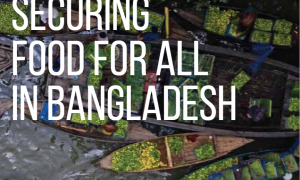The role of social identity in improving access to water, sanitation and hygiene (WASH) and health services: Evidence from Nepal
COVID-19 has revived focus on improving equitable access to water, sanitation and hygiene (WASH) and health services in developing countries. Most public programming tends to rely on economic indicators to identify and target vulnerable groups.

